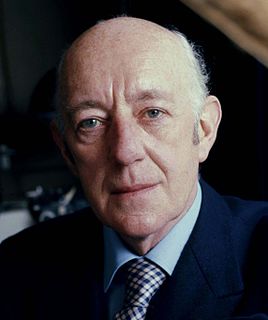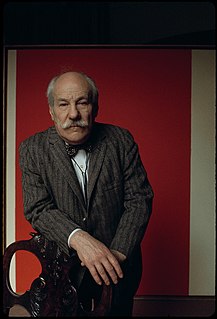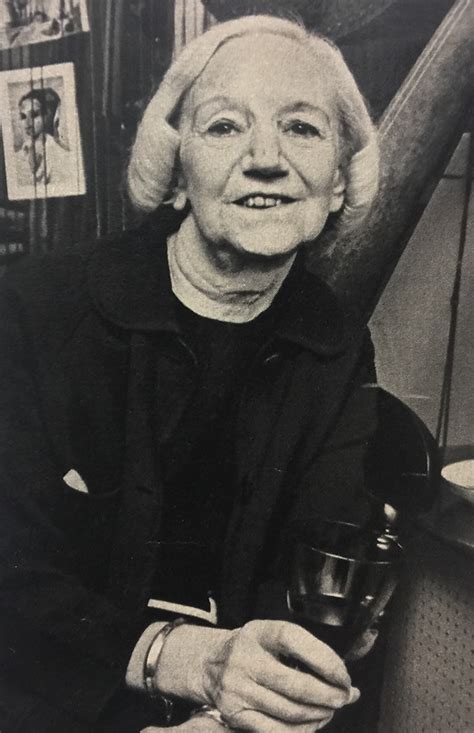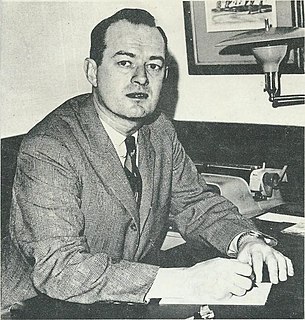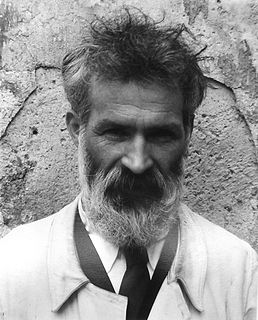A Quote by Hans Arp
Tooting, howling, screeching, booming, crashing, whistling, grinding, and trilling bolster his [mankind's] ego. His anxiety subsides. His inhuman void spreads monstrously like a gray vegetation.
Related Quotes
The man has a curious inborn conviction of his own superiority which is quite unshakeable. All his life he has bullied and browbeaten those around him by his high-and-mightiness and his atrocious temper. As a boy he terrorized his entire family by his tantrums, when, if thwarted, he would throw himself on the floor and yell till he went blue in the face. It has been much the same ever since. Everyone's terrified of his rages. He has only to start grinding his teeth, and people fall flat before him.
What a wee little part of a person's life are his acts and his words! His real life is led in his head, and is known to none but himself. All day long, the mill of his brain is grinding, and his thoughts, not those of other things, are his history. These are his life, and they are not written. Everyday would make a whole book of 80,000 words -- 365 books a year. Biographies are but the clothes and buttons of the man -- the biography of the man himself cannot be written.
The challenge of abating one with a genuine ego problem is to not try to put him down. Any and all antagonization, in his mind, is merely compensated for by his own descriptions: his feelings of persecution by the envious and his ideals of worth. Arguably, the genuine ego is more of a circumstantial defense mechanism rather than a steady arrogance in need of starvation.
No man, however enslaved to his appetites, or hurried by his passions, can, while he preserves his intellects unimpaired, please himself with promoting the corruption of others. He whose merit has enlarged his influence would surely wish to exert it for the benefit of mankind. Yet such will be the effect of his reputation, while he suffers himself to indulge in any favourite fault, that they who have no hope to reach his excellence will catch at his failings, and his virtues will be cited to justify the copiers of his vices.

